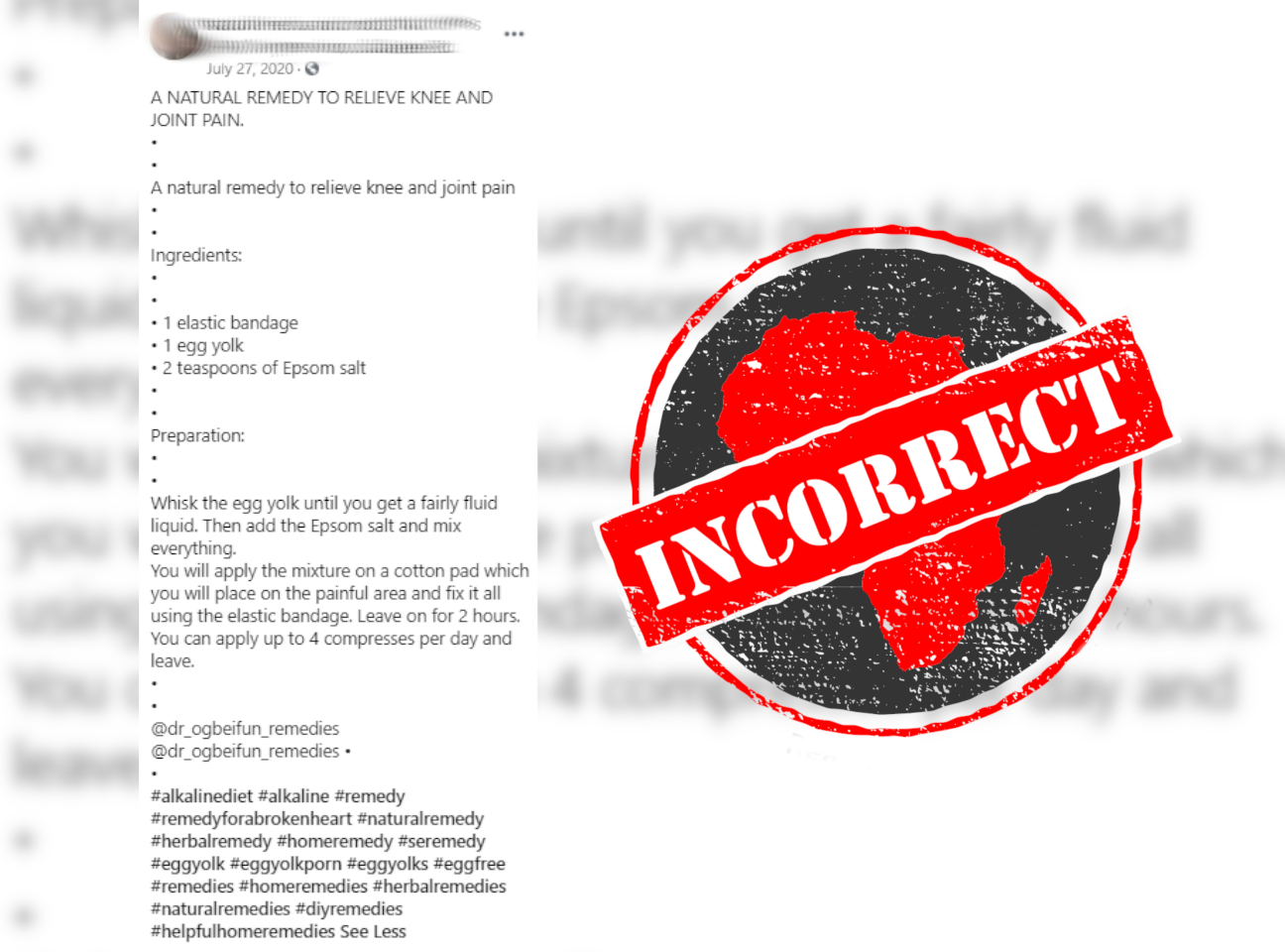“A natural remedy to relieve knee and joint pain,” begins a message posted on Facebook in Nigeria.
It claims a mixture of egg yolk and Epsom salt will ease this pain.
“Whisk the egg yolk until you get a fairly fluid liquid. Then add the Epsom salt and mix everything. You will apply the mixture on a cotton pad which you will place on the painful area and fix it all using the elastic bandage. Leave on for 2 hours. You can apply up to 4 compresses per day and leave.”
Epsom salt, also called magnesium sulphate, is a chemical compound of magnesium, sulphur and oxygen. It is a bitter crystalline substance that’s either colourless or white.
But can this combination be used to treat knee or joint pain?

Not scientifically proven
Knee pain is a common condition. There are many causes, ranging from injury to some kind of arthritis. Arthritis is inflammation in the joints.
There are several medical treatments for knee and joint pain, depending on the cause.
“I recently stumbled on the claim but just ignored it. It makes no sense to me,” Chike Anibeze, a professor of anatomy at Nigeria’s Enugu State University College of Medicine, told Africa Check.
Anibeze said he had not seen any research into joint pain being treated with egg yolk and Epsom salt.
“The ingredients do not affect knee or joint pain. My advice to anyone battling this pain is to visit a doctor. The doctor will need to establish the cause of the pain before prescribing treatment."
Republish our content for free
For publishers: what to do if your post is rated false
A fact-checker has rated your Facebook or Instagram post as “false”, “altered”, “partly false” or “missing context”. This could have serious consequences. What do you do?
Click on our guide for the steps you should follow.
Publishers guideAfrica Check teams up with Facebook
Africa Check is a partner in Meta's third-party fact-checking programme to help stop the spread of false information on social media.
The content we rate as “false” will be downgraded on Facebook and Instagram. This means fewer people will see it.
You can also help identify false information on Facebook. This guide explains how.


Add new comment